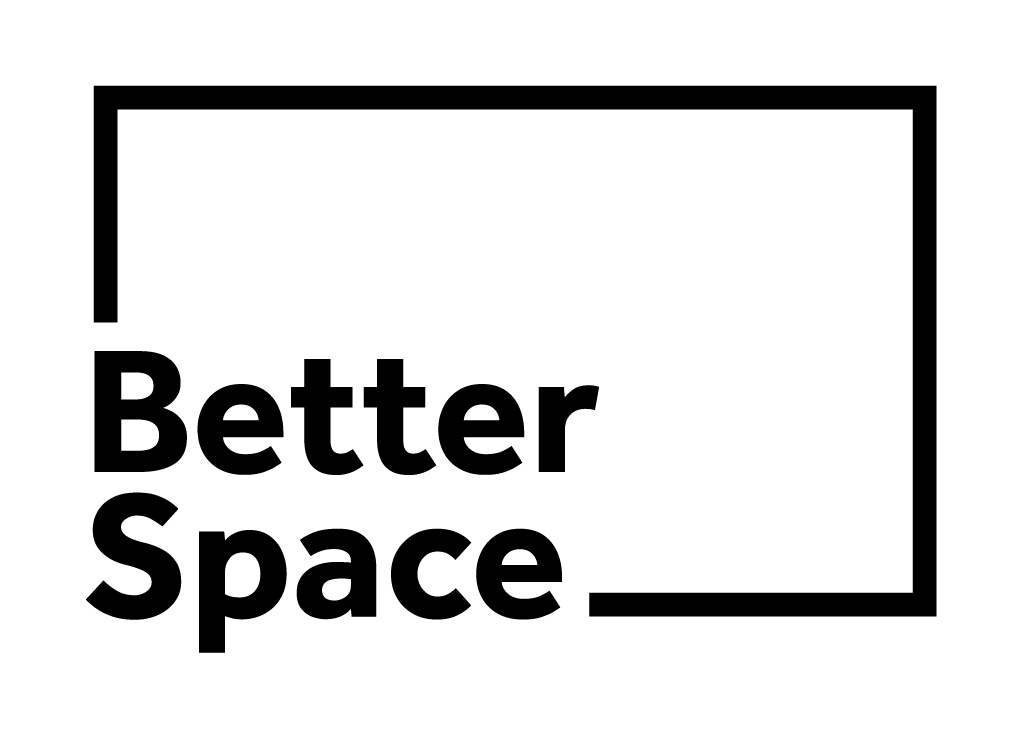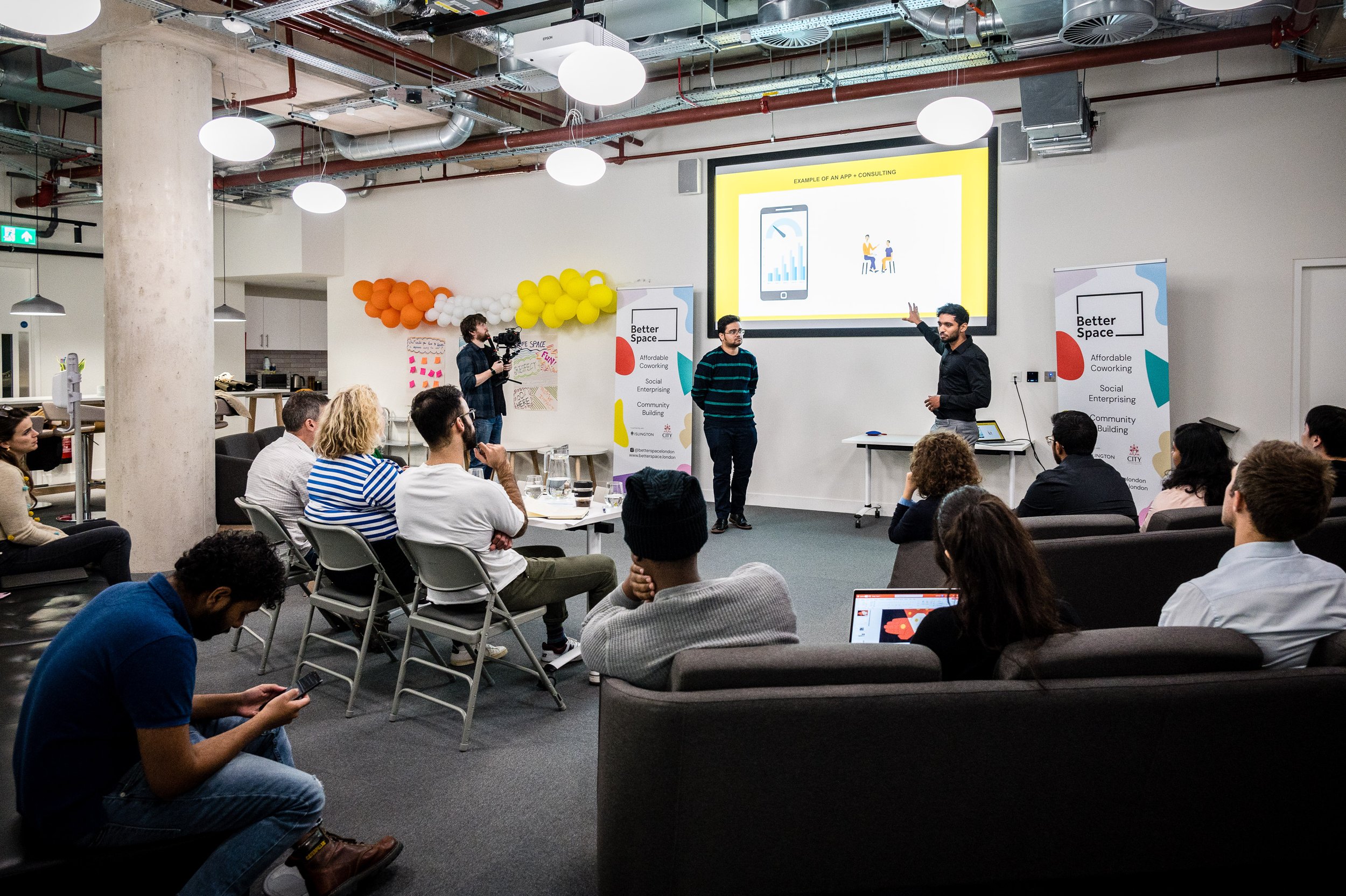Changemaker Challenge 2022!
The Changemaker Challenge: how aspiring entrepreneurs can tackle local problems with tried and tested social enterprise solutions!
“I’ve always wanted to do something for my community but didn’t really know what and how. This event helped me start a project that makes a lot of sense, as it’s reassuring to know it’s been successful elsewhere!”
“What an amazing experience! I learnt so much in such a short period of time, about myself, about others and about social impact. I’m forever grateful.”
“I got to learn more about the power of social replicating and collaborate with like-minded people. It’s been an awesome event!”
These are some of the words of the participants who took part in the Changemaker Challenge 2022, which took place at Better Space over the weekend of the 7th-9th October.
What was the event?
The Changemaker Challenge was a hands-on, 3-day hackathon-style event, for aspiring social entrepreneurs to discover the best social enterprise ideas that could be brought in to Islington to tackle some of the social and environmental challenges faced here.
It was led by Snowball Effect who have a unique enterprise of helping aspiring social entrepreneurs to replicate successful social impact ventures, rather than reinventing the wheel; ultimately helping to scale positive impact as efficiently and effectively as possible.
LOCAL PROBLEMS TO SOLVE
It all started with the kick-off event a few weeks before the event, where - among others - Caroline Wilson, Director for Inclusive Economy and Jobs at the Islington Council, presented the social and environmental problems to be solved in Islington. This provided our aspiring social entrepreneurs with more detail and understanding of the challenges they could help to address.
THE “SOLUTIONS” MUSEUM
On the first day of the event, the participants discovered social enterprises that have solved issues similar to the ones found Islington. A total of 33 initiatives were presented for participants to get inspired by and explore for working the feasibility to replicate locally. They ranged from solutions in the fields of environment (Climate awareness, Food waste, Circular economy, Sustainable Tourism, Mobility…), social inclusion and poverty (homelessness, elderly, migrants, disabilities, housing, mental health) and education (for kids, adults, etc.)
TEAM BUILDING
As important as the social enterprise solutions, are the people who form a team together to make the solutions come to life. On the first day of the event, a big emphasis was placed on helping participants meet like minded, complementary and aligned team mates. From ice breakers to bingo games to collective introspection exercises and deeper discussions, the participants were able to discover who they had a real human fit with as well as with whom they felt aligned in terms of vision, values and field they wanted to work in. After exchanging aspirations, ideas and ambitions, the teams were formed by the end of the first day!
MARKET STUDY & REPLICATION ASSESSMENT
After the teams were formed and participants’ ideas were sparked with the Solutions Museum, it was time to confront their plans with the local reality! So on the second day, participants had to validate whether the social enterprise they planned to replicate was the most relevant answer to the identified local problem. From interviewing people to mapping the ecosystem to understanding what really is the root cause of the problem, participants for sure had an active day!
An in-depth workshop was also delivered at the beginning of the day for participants to get the tips & tricks to run a thorough market study & replication assessment. Topics such as “What makes a social enterprise a social enterprise - what do they do differently”, “what is a hybrid business model” or “what to be careful about when you replicate an existing solution” were presented and discussed.
What were the outcomes?
On the final day, the teams presented their projects in front of a judging panel who’d assess the teams on the following 5 criteria: impact, desirability, feasibility, viability and execution. We were honoured to have in our judging panel:
Caroline Wilson, Director for Inclusive Economy and Jobs at the Islington Council
Amir Rizwan, Investor Relations Director at Big Society Capital
Ralph La Fontaine, Head of Entrepreneurship at City, University of London
We were extremely happy to see such high quality teams pitching their projects on the final day. We were impressed by the depth of their analysis despite the short period of time and the strong teams they’ve built.
The winning teams were the following:
1st PRIZE: Level Up
Bahlla, Mohamed and Shash identified a huge social issue related to the Gig Economy and created Level-Up. Level-Up aims to connect gig workers seeking full-time employment with the tools they need to do so. It was inspired by the Austrian social enterprise MTOP (More Than One Perspective), which designs programmes for refugees and third-world nationals to access employment opportunities.
‘Level-Up aims to create an associates’ programme of activities designed to get people from gig work into full-time jobs, providing them with a network of support and guidance.’
They won the first prize, receiving £1000 grants to kickstart their project, were granted access to a coworking space for free for 1 month and will get a mentoring session with the founder of MTOP, to help them get started but not from scratch.
Joint Second Prize - Jamba - UK
Varsha, Mohit and Jojo got together to solve problems disabled people face in Islington. Indeed, they found disabled people represent 17% of the population in Islington and 49% of them are economically inactive - among which the ethnic minorities are largely represented.
Hence, they wanted to make it easier for disabled people to get guidance on job opportunities and help them get one that is suited for them. It turns out, Jamba, a social enterprise from Bulgaria displayed in the Solutions Museum, has been doing exactly that for several years. So they pitched the idea to replicate this project in Islington. Their promising market study, strong team and strategic thoughts to implement it led them to win the second prize in this competition. They received £250 funding, were granted access to a coworking space for free for 1 month and will get a mentoring session with the founder of Jamba, to help them get started but not from scratch.
Joint Second Prize - Carbonic Project
More than 84% of carbon emissions in Islington are coming from Buildings, in which half of its are council homes and business premises, rest is private. Because of these, Islington council face a lack of direct control. How to solve this problem? How can we mitigate the transition risk caused by small SMEs who are unaware of what's happening around? How can we manage Energy efficiency in small households who are unaware?
Arif and Asheer created the Carbonic Project to solve this problem, which goal is to help SMEs Track and Mitigate their carbon emissions. They demonstrated strong data and their complementary skills and experiences got them to win the second prize in this competition. Congratulations!
What next?
If you’re interested in these projects or in finding out how you can get involved in similar initiatives around social entrepreneurship in Islington, please get in touch! betterspace@city.ac.uk








